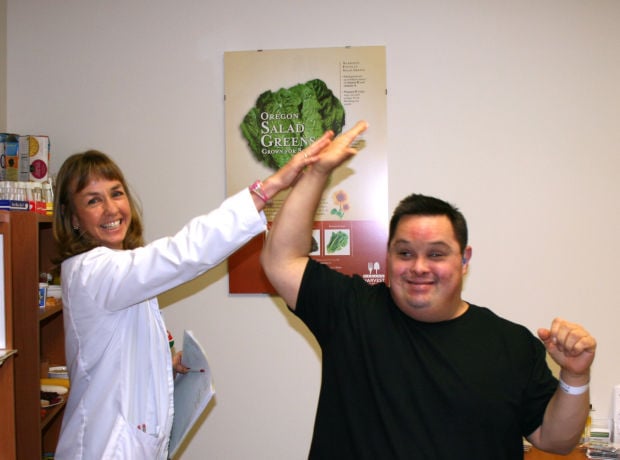Commenting on a
Lancaster Online article about the signing of the “Achieving a Better Life Experience” (ABLE) Act into law, Scranton, PA attorney Todd O’Malley today praised O’Malley & Langan law clerk Sara Wolff for her role in raising awareness for the bill, which extends financial benefits to disabled workers across the United States.
O’Malley, an experienced workers’ compensation attorney at Scranton law firm
O’Malley & Langan PC, based his comments on a December 29 article, “People with disabilities finally ABLE to save.” The article details efforts made by Wolff, a law clerk at the firm for more than 13 years, to petition elected officials for their support in extending the rights of disabled workers.
“At O’Malley & Langan, we have proudly watched our own Sara Wolff spearhead the drive to get the ABLE Act passed,” O’Malley said. “The ABLE Act will allow workers with long-term disabilities, such as Down syndrome or those with autism spectrum disorders, to save money for important costs such as housing and education while qualifying for government services and Medicaid.”
According to the article, Wolff lobbied for the past eight years to raise awareness for the bill, including visiting Washington, D.C., with other advocates and testifying before the Senate Finance Committee. Wolff, who has Down syndrome, won over the support of representatives such as U.S. Senator Bob Casey (D-Scranton), who was one of two senators to introduce the act in the senate.
According to Lancaster Online, the ABLE Act of 2014 passed the House by a vote of 404 to 17 and in the Senate by a vote of 76 to 16, allowing people with disabilities to save up to $100,000 in tax-deferred accounts for eligible expenses such as education, medical expenses, employment training and housing.
O’Malley said that Wolff, a gifted public speaker and board member of the National Down Syndrome Society, played an integral role in the passage of the bill, including the creation of an
online petition in support of the ABLE Act on change.org that gathered more than a quarter-million supporters.
“The passage of the ABLE Act undoubtedly paves the way for disabled citizens on SSI to dramatically improve their quality of life. Thanks to Sara’s courageous and tenacious efforts, this dream has become a reality for millions,” O’Malley said. “We are proud to call Sara a member of the O’Malley & Langan family.”
About O’Malley & Langan PC
With offices in Scranton, Hazleton, Pittston and Towanda, O’Malley & Langan PC has a well-earned reputation for being a top-notch workers’ compensation and personal injury law firm in Northeastern Pennsylvania. O’Malley & Langan PC has grown to 31 staff and attorneys since Todd J. O’Malley and Gerard Langan founded the firm in 1990, but we still offer clients the personalized service and attention of a small law firm. Our law firm handles a wide range of cases, including workers’ compensation, construction & workplace accidents, long-term workplace illnesses, Social Security disability, auto accidents, personal injury, oil & gas drilling accidents and other cases. Call (570) 344-2667 and schedule a free case evaluation today.
O’Malley & Langan PC
201 Franklin Avenue
Scranton, PA 18503
http://www.omalleylangan.com/





